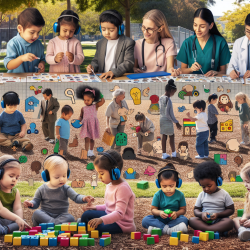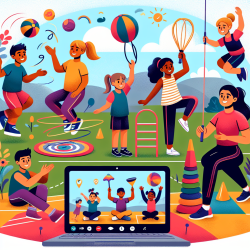As a practitioner dedicated to providing the best possible outcomes for children with early hearing loss, it's essential to consider the cultural competence of your services. The research article "Barriers and Facilitators to Cultural Competence in Early Hearing Loss Services: A Qualitative Analysis" offers valuable insights into the challenges and facilitators experienced by practitioners in this field. Here, we will discuss the key findings from this study and how you can implement these insights to improve your practice.
Key Findings from the Research
The study identified three primary themes:
- Characteristics of a culturally competent practitioner
- Barriers to service provision
- Facilitators to service provision
Characteristics of a Culturally Competent Practitioner
Practitioners described various characteristics essential for cultural competence, including:
- Respect for culture and language
- Knowledge of cultural practices
- Self-reflection on personal biases and assumptions
- Open-mindedness
- Flexibility in modifying sessions to meet cultural needs
Barriers to Service Provision
Practitioners encountered several barriers when providing services to families of minority cultural backgrounds:
- Language Barriers: These affected every stage of treatment, even when interpreters were available.
- Cultural Challenges: Issues such as gender preferences for practitioners and the stigma of disability in certain cultures posed challenges.
- Standardized Assessments: Many assessments were not culturally appropriate, affecting the accuracy of results.
Facilitators to Service Provision
Despite these barriers, practitioners used several strategies to improve service provision:
- Communication Strategies: Ensuring comprehension by asking caregivers to repeat information, using simple language, and employing visual aids.
- Learning About Cultures: Attending workshops, asking families about their cultural practices, and conducting home visits.
- Modifying Interventions: Tailoring standardized assessments and therapy sessions to be culturally sensitive.
Implementing These Insights in Your Practice
To improve your cultural competence, consider the following actionable steps:
- Engage in Continuous Learning: Attend cultural competence workshops and seek out resources to better understand the cultural backgrounds of the families you serve.
- Adapt Communication Methods: Use visual aids, simple language, and confirm understanding through repetition.
- Customize Assessments and Interventions: Modify standardized assessments to better reflect the cultural context of the child's environment.
- Practice Self-Reflection: Regularly reflect on your own cultural biases and assumptions to improve your sensitivity and responsiveness.
By incorporating these strategies, you can create a more inclusive and effective service environment that meets the diverse needs of all families.
To read the original research paper, please follow this link: Barriers and Facilitators to Cultural Competence in Early Hearing Loss Services: A Qualitative Analysis










